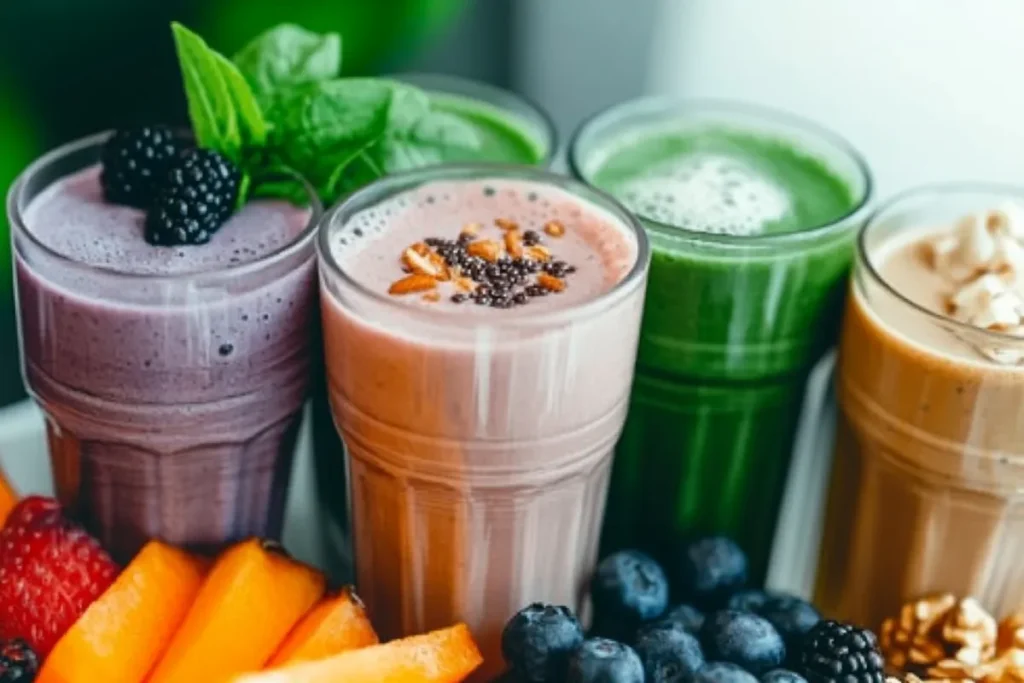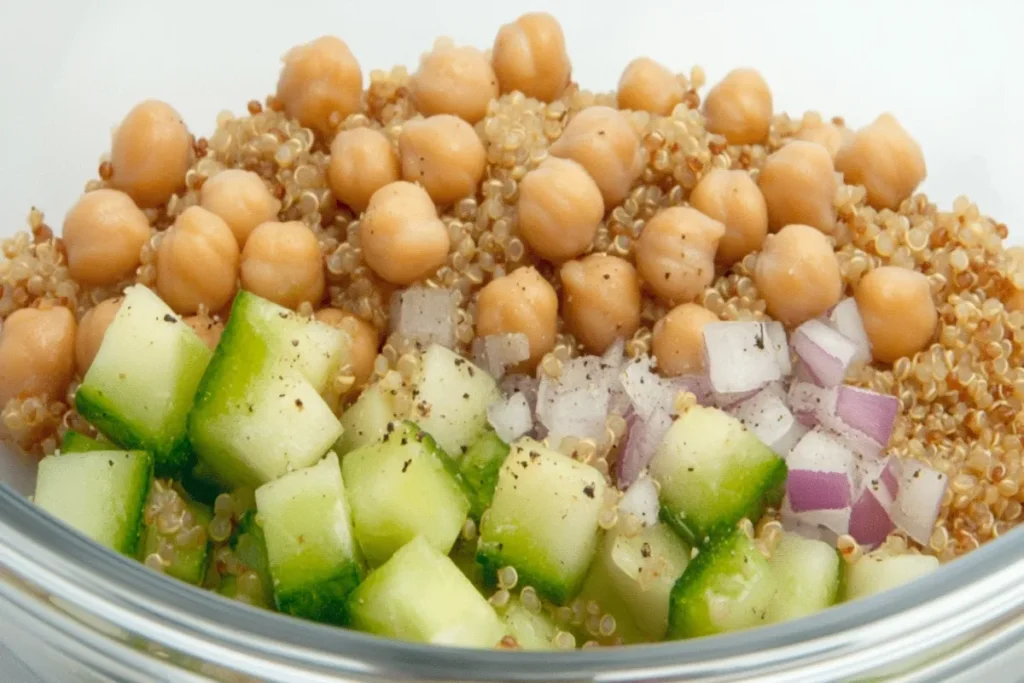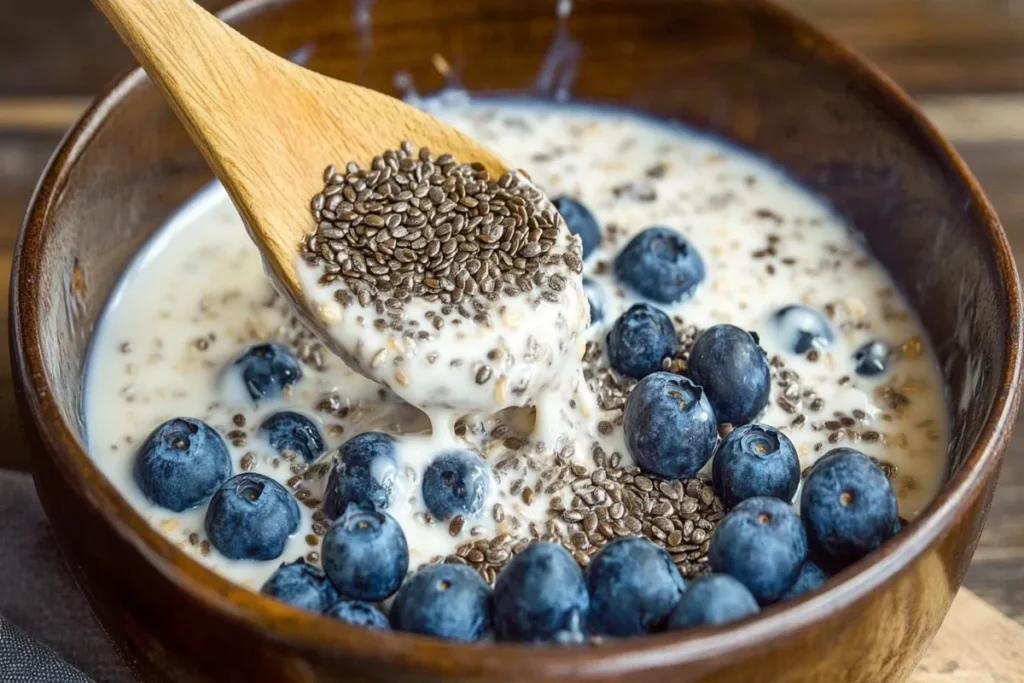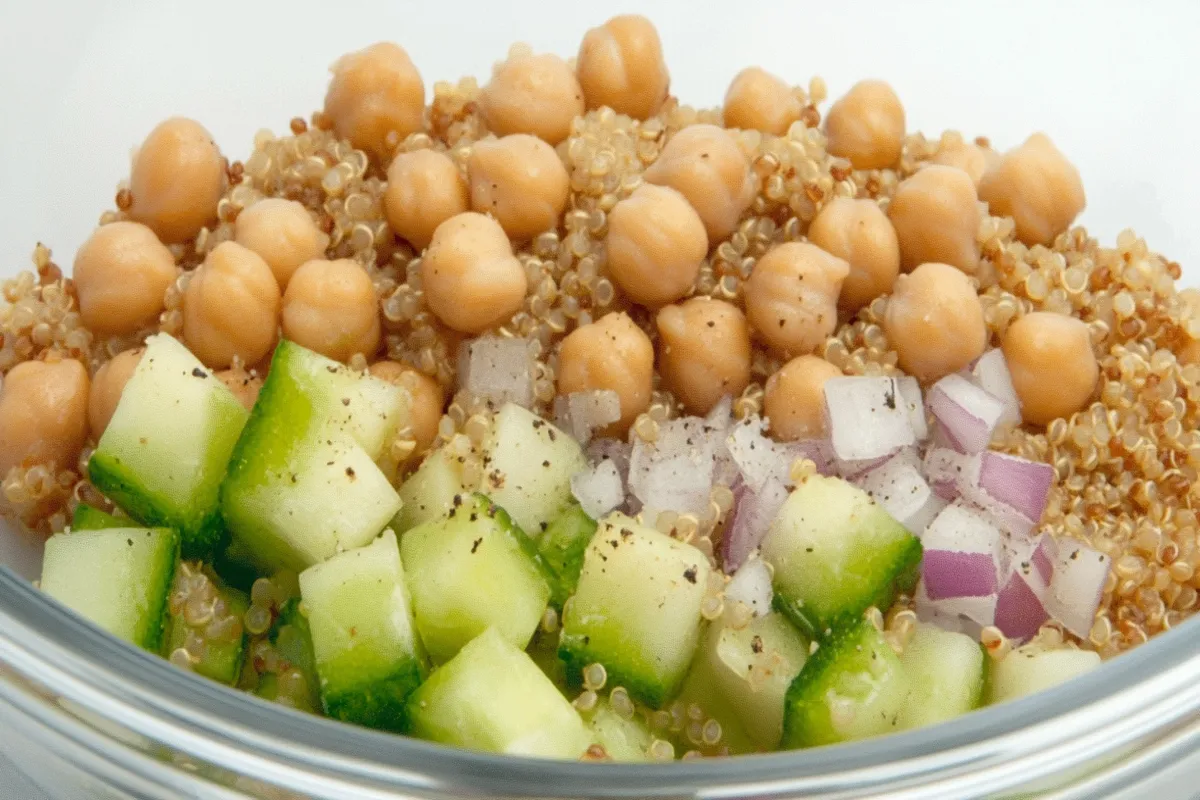Introduction: How Diet Affects Hair Health
Recipes to Stop Hair Fall Naturally can be a game-changer in your hair care routine. Hair fall is a common concern for both men and women. Losing some hair daily is normal, but excessive hair fall can be a sign of nutritional deficiencies, stress, hormonal imbalances, or underlying health conditions. While many people rely on hair products and treatments, the best way to prevent hair loss and strengthen hair naturally is through a nutrient-rich diet.

Recipes to Stop Hair Fall Naturally are one of the most effective ways to nourish your scalp and promote stronger, healthier hair. Hair fall is a common concern for both men and women, and while shedding some hair daily is normal, excessive hair loss may indicate nutritional deficiencies, stress, hormonal imbalances, or underlying health conditions.
Instead of relying solely on hair products and treatments, the best approach is to prevent hair loss naturally through a nutrient-rich diet. The right combination of biotin, protein, iron, omega-3 fatty acids, and vitamins can help strengthen hair follicles, reduce breakage, and support overall hair health.
In this guide, we’ll explore 10 powerful recipes to stop hair fall naturally, packed with essential nutrients that nourish your hair from within. Whether you’re looking for hair-strengthening breakfasts, protein-rich lunches, or vitamin-loaded snacks, these meal ideas will help you combat hair fall effectively and promote regrowth.
What is Hair Fall?
Hair fall, also known as hair loss or alopecia, refers to the shedding of hair from the scalp or other parts of the body. While it is completely normal to lose 50–100 hairs per day as part of the natural hair growth cycle, excessive shedding or noticeable thinning may indicate an underlying issue that requires attention.
Understanding the Hair Growth Cycle
Hair grows in a continuous cycle that consists of three main phases:
- Anagen (Growth Phase) – The active phase where hair grows from the follicle. This phase lasts between 2–7 years, and about 85–90% of your hair is in this stage at any given time.
- Catagen (Transition Phase) – A short phase lasting 2–3 weeks, where hair follicles shrink, and growth slows down.
- Telogen (Resting & Shedding Phase) – The final phase, lasting around 2–4 months, where old hairs fall out to make way for new growth.
When this cycle is disrupted due to stress, poor nutrition, hormonal imbalances, or medical conditions, hair fall can become more severe, leading to visible thinning or bald patches.
Common Causes of Excessive Hair Fall
Several factors can contribute to excessive hair shedding, including:
- Nutritional Deficiencies – Lack of iron, biotin, vitamin D, and protein can weaken hair strands.
- Hormonal Imbalances – Thyroid disorders, PCOS, and menopause can disrupt hair growth.
- Stress & Anxiety – High-stress levels trigger telogen effluvium, causing sudden hair loss.
- Hairstyling & Heat Damage – Excessive use of heat tools, tight hairstyles, and harsh chemicals weaken hair over time.
- Medical Conditions & Medications – Conditions like alopecia areata, scalp infections, and side effects from medications (such as chemotherapy or birth control pills) can lead to hair loss.
When Should You Be Concerned About Hair Fall?
While some daily shedding is normal, you should seek professional advice if you notice:
- Hair falling out in large clumps
- Widening of the part line or bald patches
- Sudden increase in shedding without a clear reason
- Itchy, flaky scalp or other scalp conditions accompanying hair loss
Early intervention, dietary changes, and proper hair care can help prevent further loss and encourage healthy regrowth.
Types of Hair Fall:
- Telogen Effluvium – Temporary hair loss due to stress, illness, or poor diet.
- Androgenetic Alopecia – Genetic hair thinning (male and female pattern baldness).
- Alopecia Areata – Autoimmune condition causing patchy hair loss.
- Nutritional Hair Loss – Caused by deficiencies in biotin, iron, zinc, and protein.
The good news? You can control and reduce hair fall naturally by nourishing your hair from the inside out with a balanced diet rich in essential nutrients.
10 Best Recipes to Stop Hair Fall Naturally
Now that we understand how nutrition impacts hair health, let’s explore 10 scientifically-backed recipes that contain key vitamins and minerals to help reduce hair fall and promote new hair growth.
1. Avocado & Egg Hair-Strengthening Smoothie
Why it works: Eggs are rich in biotin and protein, essential for keratin production, while avocados contain healthy fats and vitamin E, which strengthen hair follicles.
Ingredients:
- 1 ripe avocado
- 1 boiled egg (yolk only)
- 1 cup Greek yogurt
- 1 tablespoon flaxseeds
- 1 teaspoon honey
- 1 cup almond milk
- ½ teaspoon cinnamon
Instructions:
- Blend all ingredients until smooth.
- Pour into a glass and enjoy!
Tip: Drink this smoothie 3-4 times a week for stronger, healthier hair.
2. Zinc-Rich Lentil & Spinach Power Bowl
Why it works: Lentils provide zinc, protein, and iron, which are essential for reducing hair shedding and improving follicle strength.
Ingredients:
- 1 cup cooked lentils
- 1 cup fresh spinach (lightly sautéed)
- ½ cup cherry tomatoes
- ¼ avocado
- 1 tablespoon pumpkin seeds (high in zinc)
- 1 teaspoon olive oil
- ½ lemon (juiced)
- Salt & black pepper to taste
Instructions:
- Combine all ingredients in a bowl.
- Drizzle with olive oil and lemon juice.
- Mix well and enjoy!
Tip: Eat this three times a week to replenish zinc and iron levels.
3. Omega-3 & Collagen Salmon Stir-Fry
Why it works: Salmon is rich in omega-3 fatty acids, which nourish the scalp and prevent dryness. Bell peppers add vitamin C, essential for collagen production and hair strength.
Ingredients:
- 1 salmon fillet
- 1 cup mixed bell peppers
- 1 small carrot
- 1 tablespoon sesame seeds
- 1 teaspoon ginger
- 1 teaspoon coconut oil
- 1 teaspoon soy sauce
- 1 cup cooked quinoa
Instructions:
- Heat coconut oil in a pan and sauté ginger.
- Add salmon and cook for 3-4 minutes per side.
- Toss in bell peppers and carrots, stir-frying for 3 minutes.
- Sprinkle sesame seeds and drizzle soy sauce.
- Serve over quinoa.
Tip: Eat twice a week for stronger, shinier hair.
4. Biotin-Boosting Walnut & Banana Smoothie
Why it works: Walnuts and bananas are biotin-rich superfoods that help strengthen hair follicles and reduce breakage.
Ingredients:
- 1 ripe banana
- 5 walnuts
- 1 tablespoon almond butter
- 1 cup oat milk
- 1 teaspoon chia seeds
- ½ teaspoon cinnamon
Instructions:
- Blend all ingredients until smooth.
- Pour and enjoy!
5. Protein-Packed Chickpea & Quinoa Salad

Why it works: Chickpeas and quinoa provide high amounts of plant-based protein, essential for keratin production, which strengthens hair strands.
Ingredients:
- 1 cup cooked quinoa
- 1 cup boiled chickpeas
- ½ cucumber, diced
- ½ red onion, diced
- 1 tablespoon lemon juice
- 1 teaspoon olive oil
- Salt & pepper to taste
Instructions:
- Combine all ingredients in a bowl.
- Mix well and serve fresh!
6. Iron-Rich Spinach & Beetroot Soup
Why it works: Spinach and beets are loaded with iron, which boosts oxygen supply to hair follicles, reducing hair fall.
Ingredients:
- 1 cup spinach
- 1 small beetroot
- ½ onion
- 1 teaspoon olive oil
- 2 cups vegetable broth
Instructions:
- Sauté onions in olive oil.
- Add spinach and chopped beetroot.
- Pour in broth and simmer for 15 minutes.
- Blend and serve warm!
7. Almond & Pumpkin Seed Hair-Boosting Trail Mix
Why it works: Pumpkin seeds are rich in zinc, which prevents hair thinning, while almonds provide vitamin E for scalp nourishment.
Ingredients:
- ¼ cup almonds
- ¼ cup pumpkin seeds
- ¼ cup sunflower seeds
- 1 tablespoon dried cranberries
Instructions:
- Mix all ingredients together and store in an airtight container.
- Snack daily for stronger hair.
8. Sweet Potato & Avocado Toast
Why it works: Sweet potatoes are rich in beta-carotene, which converts to vitamin A, crucial for a healthy scalp and reduced hair fall.
Ingredients:
- 1 slice whole-grain bread
- ½ small sweet potato, mashed
- ½ avocado, mashed
- 1 teaspoon lemon juice
- Salt & pepper to taste
Instructions:
- Spread mashed sweet potato and avocado on toast.
- Season with lemon juice, salt, and pepper.
9. Hair-Nourishing Bone Broth Soup
Why it works: Collagen and protein-rich bone broth support hair strength and repair damaged follicles.
Ingredients:
- 2 cups bone broth
- 1 cup chopped vegetables
- 1 teaspoon turmeric
- 1 teaspoon ginger
Instructions:
- Heat bone broth and add vegetables.
- Simmer for 15 minutes and serve warm.
10. Flaxseed & Blueberry Hair-Boosting Oatmeal

Why it works: Flaxseeds provide omega-3 fatty acids, while blueberries offer antioxidants that protect hair follicles.
Ingredients:
- ½ cup oats
- 1 cup almond milk
- 1 tablespoon flaxseeds
- ¼ cup blueberries
Instructions:
- Cook oats with almond milk.
- Top with flaxseeds and blueberries.
FAQs: People Also Ask
What foods stop hair fall immediately?
If you’re experiencing hair fall, certain nutrient-rich foods can help strengthen your hair and reduce shedding. Foods that contain biotin, zinc, protein, and omega-3 fatty acids play a crucial role in improving hair health. Some of the best options include:
- Eggs – Rich in biotin and protein, which are essential for hair growth.
- Salmon – Packed with omega-3 fatty acids that nourish hair follicles and improve scalp health.
- Nuts & Seeds – Almonds, walnuts, and flaxseeds contain healthy fats, vitamin E, and zinc, which support hair strength.
- Leafy Greens – Spinach and kale provide iron and vitamin C, preventing hair thinning caused by deficiencies.
- Lentils & Beans – Excellent plant-based protein sources that also offer biotin and zinc.
Including these foods in your daily diet can help reduce hair fall and promote healthy, resilient hair.
Which vitamins are best for hair regrowth?
Hair regrowth largely depends on essential vitamins and minerals that support hair follicle function. Some of the best vitamins for hair regrowth include:
- Biotin (Vitamin B7) – Supports keratin production, which strengthens hair strands and promotes faster growth.
- Vitamin D – Plays a key role in stimulating dormant hair follicles and reducing hair loss.
- Zinc – Helps repair hair tissue and keeps oil glands around the follicles functioning properly.
- Iron – Prevents hair thinning by ensuring adequate oxygen supply to hair follicles.
Deficiencies in these vitamins can lead to excessive hair shedding, so incorporating them into your diet through nutrient-dense foods or supplements (if needed) can be beneficial.
Can diet alone prevent hair loss?
Yes, a well-balanced and nutrient-dense diet can significantly reduce hair loss and promote strong, healthy hair. While genetics and external factors like stress or hair care routines also impact hair health, the right diet provides the foundation for long-term hair strength. Key dietary principles for hair health include:
- Protein-Rich Meals – Hair is primarily made of keratin, a type of protein. Eating lean meats, fish, beans, and dairy supports hair structure.
- Healthy Fats – Omega-3s from fish, nuts, and avocados help nourish the scalp and maintain moisture balance.
- Iron & Zinc Intake – Prevent deficiencies that can cause hair thinning. Red meat, spinach, lentils, and pumpkin seeds are excellent sources.
- Hydration & Antioxidants – Drinking enough water and eating antioxidant-rich fruits like berries, oranges, and papaya help fight oxidative stress, which can damage hair follicles.
By following a well-rounded diet, you can naturally improve hair texture, reduce hair fall, and encourage stronger hair growth.
Conclusion
By incorporating these hair-nourishing foods into your daily meals, you can strengthen your hair naturally and reduce excessive shedding. Whether you’re looking for shinier locks, faster hair regrowth, or reduced hair fall, the right diet can make a significant difference.
Which of these foods will you add to your meals first? Let us know in the comments below!
For more in-depth information on hair-boosting nutrition, check out these expert resources:

